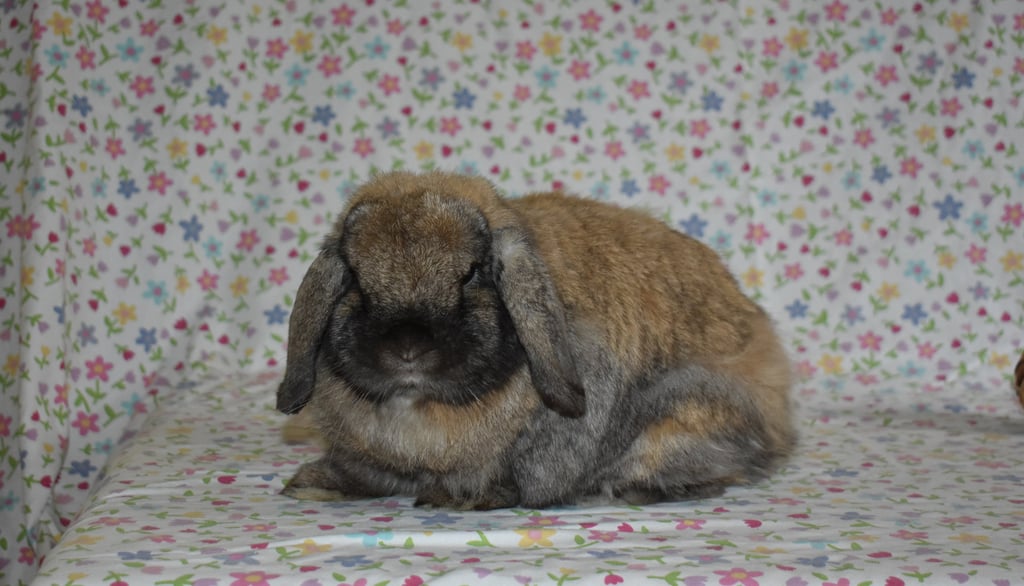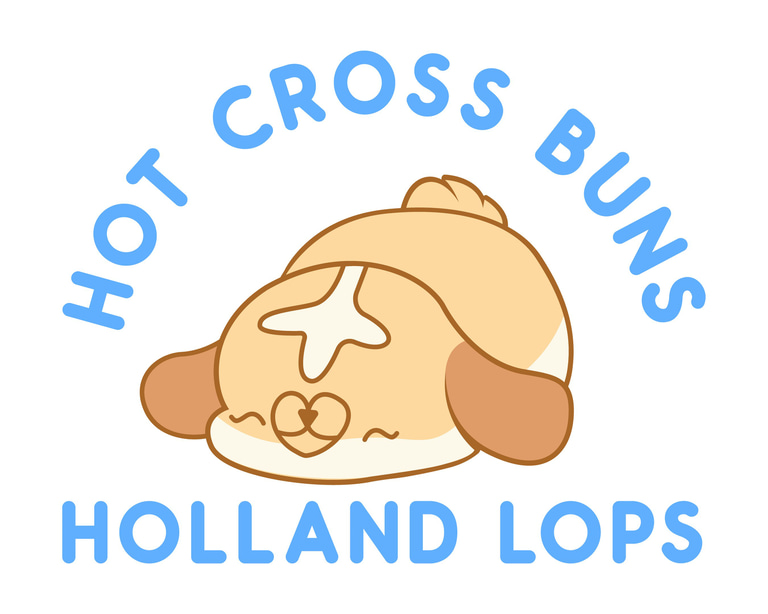What Changes as Your Bun Ages?
It's important to be aware of the changes your Bun will undergo as he or she reaches the later years of life.
THE OLDER BUNNY
Amy J. - Big Bunny @ HCB
3/8/20245 min read


As a Holland Lop begins inching its way towards the golden years (6 years+) you will notice several changes along the way. We address these changes so you can be aware and be prepared for what life can look like with an aging Bun.
Metabolism - as with most people and animals, a rabbit's metabolism slows down as it ages. Because Holland Lops are meant to be petite animals, even a few extra ounces can make life more painful or challenging for them. If you notice there's a bit more to love about your Bun than there used to be, please adjust his food portions accordingly. If he typically receives 1/4 cup of pellets a day, you might want to try 1/8 cup per day and give extra hay to help him feel satisfied. Go easy on the treats, too, especially fruits and veggies that contain sugar (like carrots and banana). If you love to give your Bun treats, stick with healthier options like fresh herbs.
Exercise - Bunnies tend to develop aches and pains as they mature, but this can often be traced back to weight issues. Help your Bun maintain a healthy weight by interacting with her daily and encouraging her to bounce, binky, and zoom with excitement. Sure, her binkies may not be as high nor her zoomies as zany as in her younger days, but she can still show joy and excitement when she has loving interaction with her favorite person/people. Exercise will also help reduce incidents of GI Stasis/blockages by keeping the blood flowing and heart pumping at a healthy rate. Binkies and zoomies also help work out things that may be getting "stuck" in the intestines, so the more wiggles, the better. Don't let her become sedentary...stay involved and make her life fun!
Grooming - Older bunnies may need help keeping their bottoms tidy. If he has gained a bit of weight, it can be challenging for him to reach all areas with the same agility of his younger days. You may need to step in and do some hygienic trims with safety scissors or clippers, to make life a bit easier and cleaner for you both. He will also need extra help with regular brushing and combing, which should already be an established part of his daily/weekly care routine.
Weight gain - An overweight rabbit is not a healthy rabbit. Every extra ounce that your bun carries is adding extra stress to her heart, kidneys, liver, hips, joints, and back. If you notice the weight creeping on, consult your veterinarian who can help you design a daily diet plan and methods of gently increasing the amount of exercise your bunny gets. The closer she gets to a healthy weight, the better she feels and the more like her younger self she will appear and act.
Sleep - your aging rabbit will enjoy naps that are longer and deeper than in his younger years. He will sometimes scare you with how deeply he can nap, even when you're walking around, making a fair amount of noise. As long as he is active and interested in life in his typical crepuscular schedule, all is well. You may need to gently wake him if he is trying to sleep through your normal playtime/free-roam time, but he will forgive you if he gets to spend time with you.
Aches and Pains - Your older Bun may develop arthritis and/or joint issues. There are joint supplements available specifically for rabbits (Sherwood Pet Health makes a tablet specifically for joint health, and another they call "Prevention" which is geared towards senior pets) that your veterinarian may advise you to use. Helping your bunny stay comfortable so she can continue to move about as easily as possibly is a great gift. If your bunny is maintaining a healthy weight, you are already helping her immensely.
Increased need for trips to the vet - Your concern for you rabbit will most likely involve more trips to the vet as you notice changes in his behavior and activity levels. Your vet may order special tests and x-rays from time to time, in order to monitor your bunny's overall health and to track any potential health issues. Don't be afraid to discuss your worries and concerns with your bunny vet.
More prone to GI Stasis and blockages - Stemming from your rabbit's weight, amount of daily exercise, and if she is feeling aches and pains as she ages, your beloved Bun may become more prone to stasis issues. Bunnies who are largely sedentary are not moving enough to aid their digestion and may have tummy problems.
Dental issues - The leading cause of health issues in truly elderly rabbits are dental problems. Because a rabbit's teeth never stop growing throughout its life, special care must be given to aid in the even wearing of the teeth, especially the molars. Trips to the vet should include dental care to help maintain even wearing and avoid later problems. Even with excellent dental care throughout its younger years, there will come a point in time at which a bun will be considered too old to safely endure the anesthesia needed to undergo further dental treatment. At this point it is good to discuss quality and quantity of life with your veterinarian and what the coming months will entail to keep your pet comfortable and well cared for. As the teeth continue to grow, they will cause increased pressure on the rabbit's sinuses. This pressure can lead to discharge from the eyes, causing a crusty buildup to result. Care must begiven to clean the eyes daily. Over time, the rabbit will become more frail as less nutrition is taken in, and it is very wise to consult your veterinarian about euthanasia before she suffers needlessly.
We are at this final point with our beloved black tort doe, Cookie (pictured above at 8 years of age). She had our first litter of babies at Hot Cross Buns (two beautiful bucks) and is now about 10 years old. Her eyes are very weepy and crusty, she is light as a feather, and looks like a good gust of wind could carry her away. Despite all of this, she still uses her litter box faithfully and fills it well every day. She still eats and drinks. She loves getting cuddles and purrs wildly every time we give her head and jaw rubs. I swear I saw her do a binky yesterday (Evelyn doesn't believe me). We are still struggling about when to call the vet. Cookie looks like a hot mess, but she is still finding ways to enjoy life, so we keep putting it off for another day or another week. Writing this article has been on my "To-Do" list for several weeks and I keep putting it off because I know that, once it is written in black and white, I will have to make that decision that we have been dreading. Because we love Cookie it is so, so hard to say goodbye to her, and yet we know the time is very close at hand.
